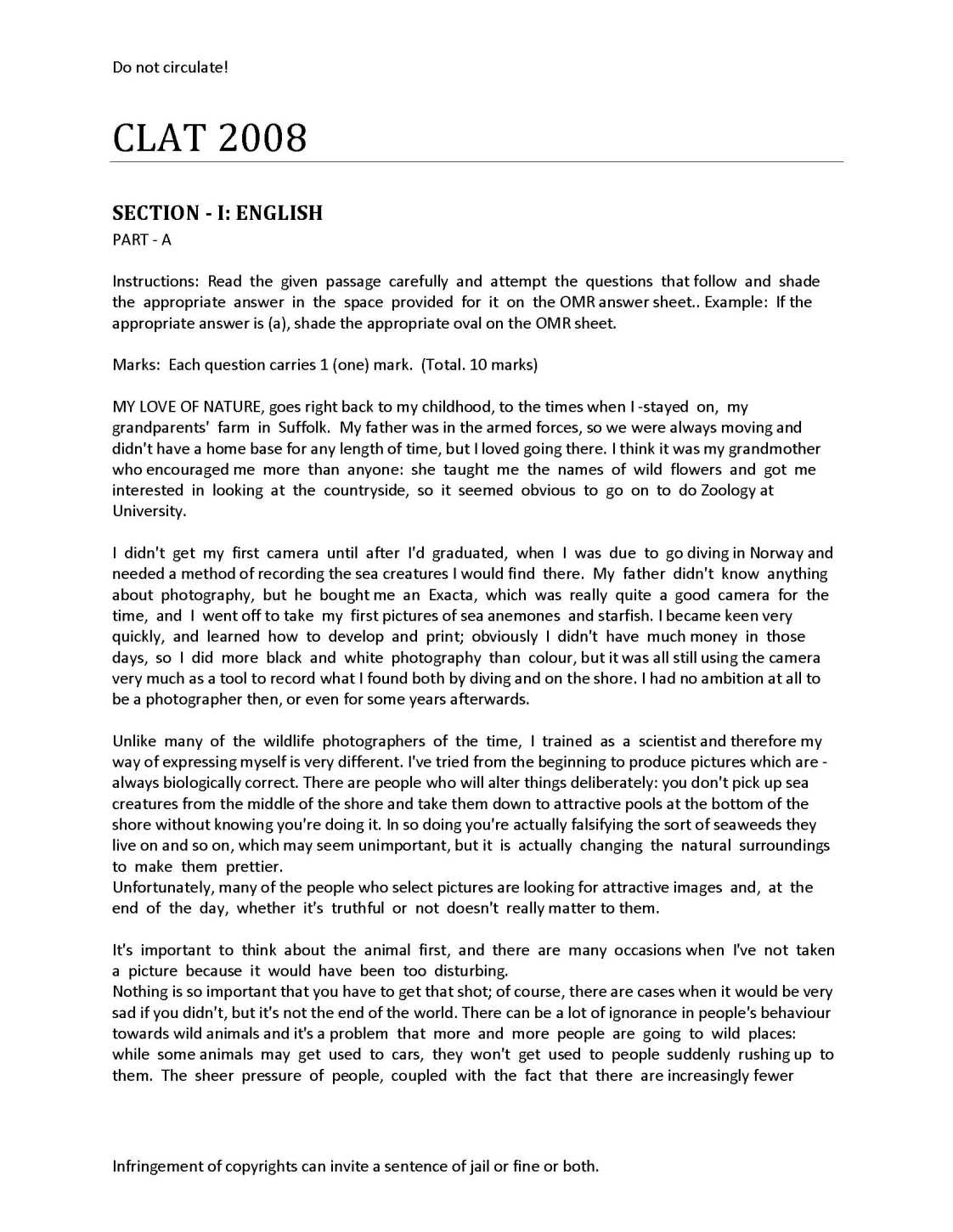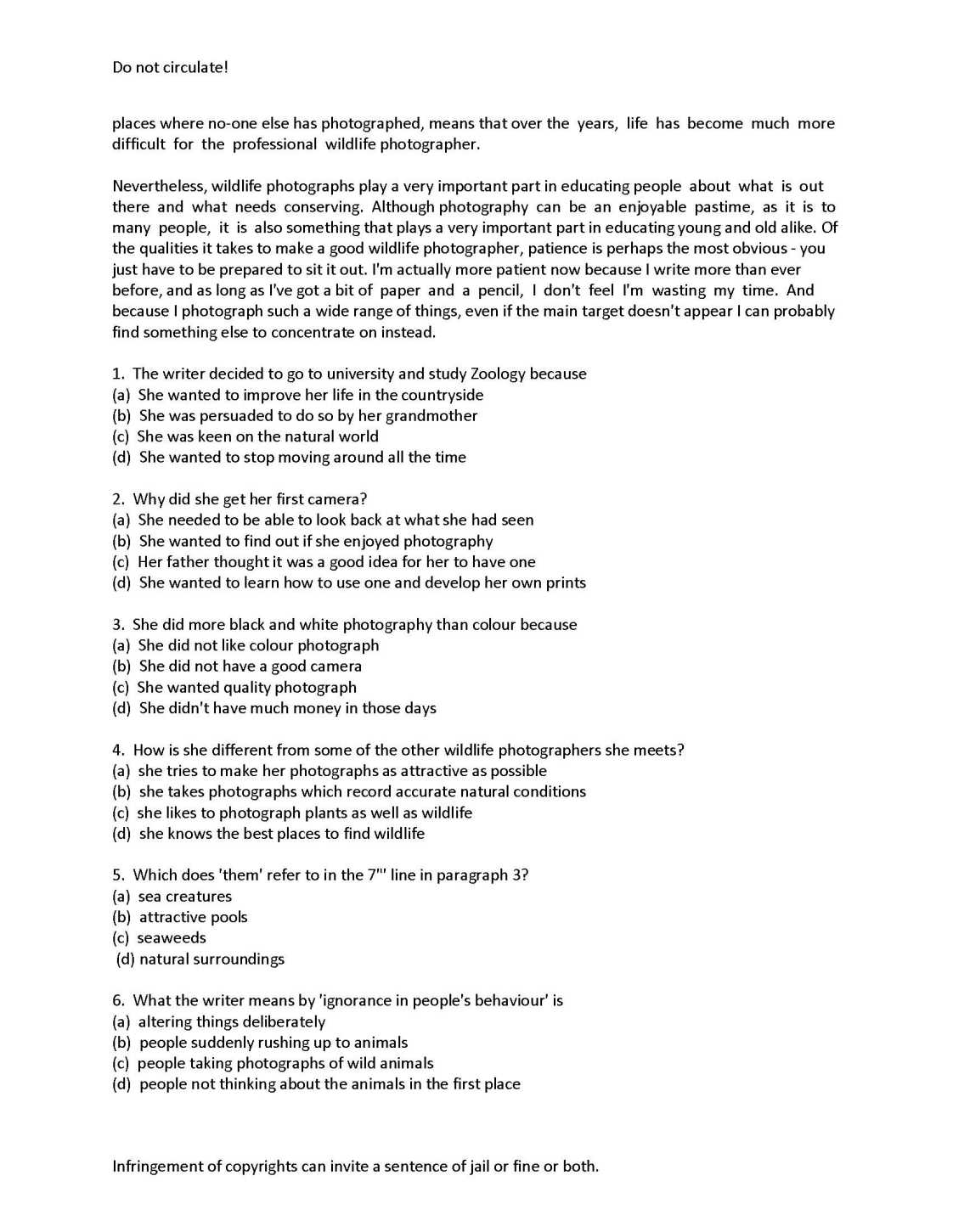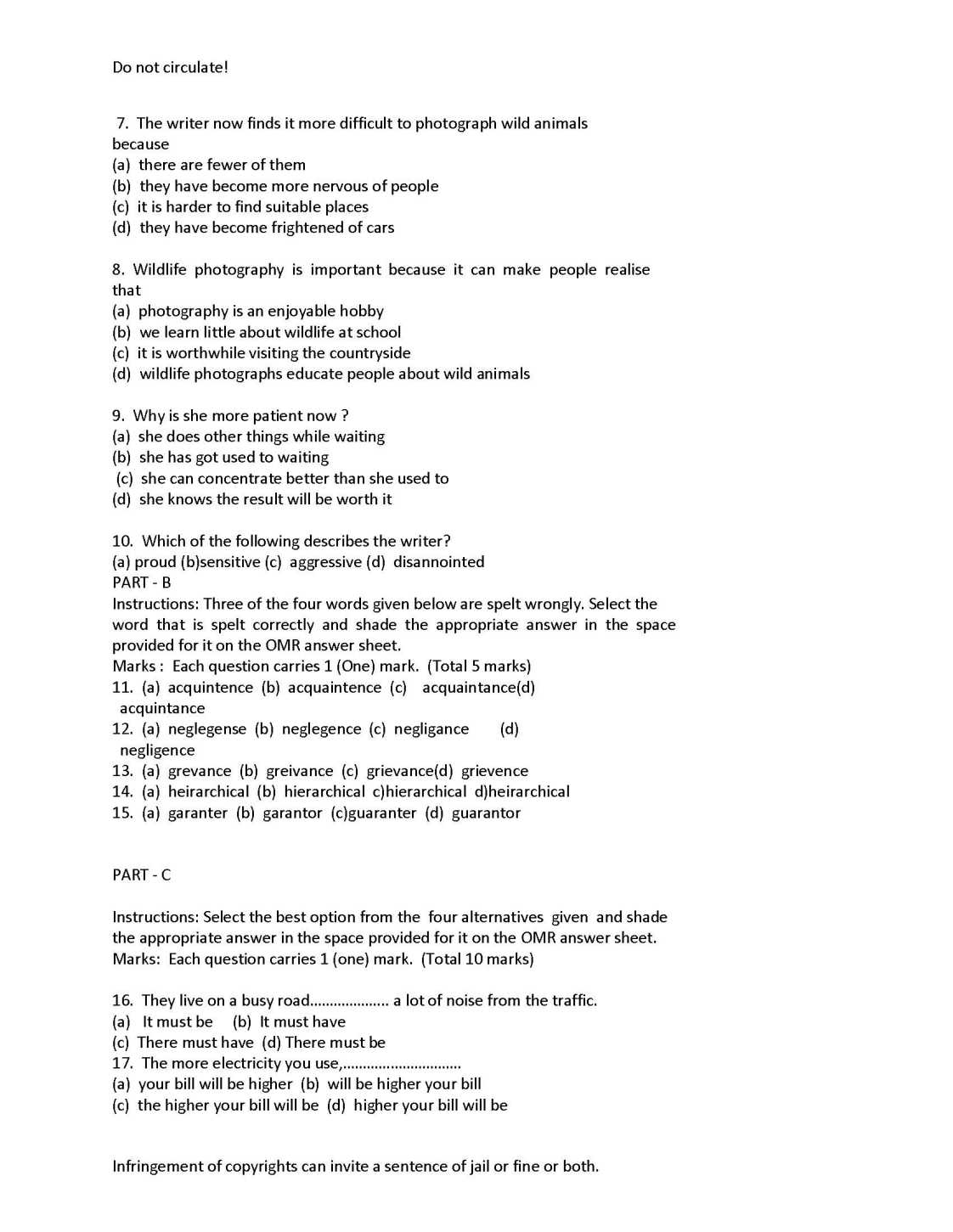|
#2
14th February 2017, 04:29 PM
| |||
| |||
| Re: NLSIU Past Papers
The previous year question paper of CLAT for admission in National Law School of Indian University (NLSIU) in UG course is as follows: SECTION - I: ENGLISH PART – A Instructions: Read the given passage carefully and attempt the questions that follow and shade the appropriate answer in the space provided for it on the OMR answer sheet.. Example: If the appropriate answer is (a), shade the appropriate oval on the OMR sheet. Marks: Each question carries 1 (one) mark. (Total. 10 marks) MY LOVE OF NATURE, goes right back to my childhood, to the times when I -stayed on, my grandparents' farm in Suffolk. My father was in the armed forces, so we were always moving and didn't have a home base for any length of time, but I loved going there. I think it was my grandmother who encouraged me more than anyone: she taught me the names of wild flowers and got me interested in looking at the countryside, so it seemed obvious to go on to do Zoology at University. I didn't get my first camera until after I'd graduated, when I was due to go diving in Norway and needed a method of recording the sea creatures I would find there. My father didn't know anything about photography, but he bought me an Exacta, which was really quite a good camera for the time, and I went off to take my first pictures of sea anemones and starfish. I became keen very quickly, and learned how to develop and print; obviously I didn't have much money in those days, so I did more black and white photography than colour, but it was all still using the camera very much as a tool to record what I found both by diving and on the shore. I had no ambition at all to be a photographer then, or even for some years afterwards. Unlike many of the wildlife photographers of the time, I trained as a scientist and therefore my way of expressing myself is very different. I've tried from the beginning to produce pictures which are - always biologically correct. There are people who will alter things deliberately: you don't pick up sea creatures from the middle of the shore and take them down to attractive pools at the bottom of the shore without knowing you're doing it. In so doing you're actually falsifying the sort of seaweeds they live on and so on, which may seem unimportant, but it is actually changing the natural surroundings to make them prettier. Unfortunately, many of the people who select pictures are looking for attractive images and, at the end of the day, whether it's truthful or not doesn't really matter to them. It's important to think about the animal first, and there are many occasions when I've not taken a picture because it would have been too disturbing. Nothing is so important that you have to get that shot; of course, there are cases when it would be very sad if you didn't, but it's not the end of the world. There can be a lot of ignorance in people's behaviour towards wild animals and it's a problem that more and more people are going to wild places: while some animals may get used to cars, they won't get used to people suddenly rushing up to them. The sheer pressure of people, coupled with the fact that there are increasingly fewer Do not circulate! Infringement of copyrights can invite a sentence of jail or fine or both. places where no-one else has photographed, means that over the years, life has become much more difficult for the professional wildlife photographer. Nevertheless, wildlife photographs play a very important part in educating people about what is out there and what needs conserving. Although photography can be an enjoyable pastime, as it is to many people, it is also something that plays a very important part in educating young and old alike. Of the qualities it takes to make a good wildlife photographer, patience is perhaps the most obvious – you just have to be prepared to sit it out. I'm actually more patient now because I write more than ever before, and as long as I've got a bit of paper and a pencil, I don't feel I'm wasting my time. And because I photograph such a wide range of things, even if the main target doesn't appear I can probably find something else to concentrate on instead. 1. The writer decided to go to university and study Zoology because (a) She wanted to improve her life in the countryside (b) She was persuaded to do so by her grandmother (c) She was keen on the natural world (d) She wanted to stop moving around all the time 2. Why did she get her first camera? (a) She needed to be able to look back at what she had seen (b) She wanted to find out if she enjoyed photography (c) Her father thought it was a good idea for her to have one (d) She wanted to learn how to use one and develop her own prints 3. She did more black and white photography than colour because (a) She did not like colour photograph (b) She did not have a good camera (c) She wanted quality photograph (d) She didn't have much money in those days    Last edited by Rajkumar Agarwal; 14th February 2017 at 04:32 PM. |